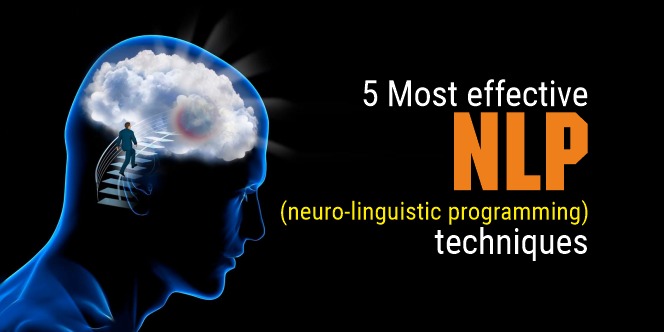
5 Most effective NLP (neuro-linguistic programming) techniques
NLP uses sound strategies and methods with psychology to help people achieve their goals. Knowing NLP provides one the ability to restructure one’s thinking by utilizing numerous Neuro-linguistic training. Neuro and Linguistic programming are about the language of the brain.
The use of NLP has produced amazing results in everyone’s lives. The way a coach interacts with both themselves and their clients is transformed by NLP. Coaching success increases when a coach learns winning strategies.
NLP (neuro-linguistic programming) expertise enables successful coaches to build their own businesses while still helping the world at large. We’ve included five NLP approaches to help you understand this better.
- Anchoring
A resourceful emotion can be revived with this Neuro-Linguistic Programming Course. You want to re-create the emotion while connecting it to action. Anchoring creates a connection between the selected physical action and the chosen feeling.
For instance, a coach can advise the client to select a resourceful, happy emotion. The client must next choose the action connected to the body. Simply touching one’s finger can be enough.
The customer may decide to touch the finger as soon as he feels content. The client and the coach may work together to alter the happy memory while using the same anchor to alter the client’s current state of mind.
Clients can work on their ideas and emotions with a coach who employs this strategy.
- Belief Change
Each individual possesses a set of self-limiting beliefs. Many beliefs, though, develop into habits. Not all beliefs benefit us in good ways. NLP- the next learning platform procedure examines the notion more closely while comprehending its detrimental effects.
By demystifying NLP Courses like Presuppositions and using inquiry, observations, and questions about the client’s current state to help the client reach the desired state, coaches can help clients change.
These methods are used by the coach to encourage the client to engage in self-examination. In this situation, the client learns how to analyze his current viewpoint and presumptions and how to adjust them in order to broaden his frame of reference.
If a coach learns and applies them, they will become lifelong knowledge. People attempt to make the best decision possible.
- Mirroring and Rapport
The main task of coaches is to foster an environment where clients can develop self-trust. To break the ice and build a stronger connection with the client, coaches might use crucial NLP techniques like mirroring and rapport-building.
An NLP coach is taught to resemble the actions of others. NLP instructors providing Neuro-Linguistic Programming Courses naturally blend their ability to communicate with the great art of subtlety. As the coach imitates the client’s body language, gestures, voice, and words, rapport and trust are increased.
- Reframing Thoughts
A coach with various NLP Courses can alter specific emotions toward a positive end using the NLP reframing technique. This method can be used by a coach to influence the level of emotion present with their clients.
The customer then knows that becoming fit is his ultimate goal. He transitions from a place of “don’t” to accomplishing his goal by concentrating on what needs to be done for a fitness program.
Have you ever noticed how skillfully a coach can harness the power of reframing thoughts? The brain deletes “don’t” messages since it doesn’t register them. It merely takes in the message “I want to be obese,” then. As a result, when a client reframes their thoughts, their brain receives a signal to do so.
Thus, a client can tell his brain to do what he wants by reframing his beliefs. Once the thoughts are reframed, “desire” would relate to “being fit” in this context.
- Creative Visualization (Meditation, Hypnosis)
Studying the art of persuasion is one of the tactics used in NLP- the next learning platform. When working with clients, a coach learns how to help them overcome limiting beliefs, internal conflicts, and unhealthy habits.
A coach may work with clients on self-acceptance through mindfulness practices. He might also encourage a customer to use quick visualization techniques to achieve their goals.
Coaches can help their customers identify their path to taking action by using these NLP approaches.
Changeworx-
These approaches are used in NLP (neuro-linguistic programming), which aims to alter how the mind communicates. There is a quicker and more obvious development in the Changeworx coaching sessions when a client learns the techniques for developing a thought process for themselves.
Coaches at Changeworx implement meaningful change and produce outcomes in their coaching practice, thanks to NLP. Additionally, it builds chemistry and trust in the client-coach connection, which promotes higher success and results.
